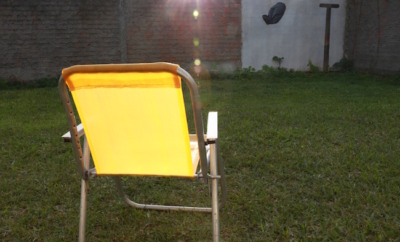
Cognitive Behavioral Therapy
At War With Yourself
“You’ve suffered enough, and warred with yourself, it’s time that you won.”
– Glen Hansard
When you’re suffering you’re at war with yourself. As tempting as it is to blame this or that external variable, your suffering is something going on within your own skin and therefore the battleground is within you.
What most of us do though is find something or someone to blame. This is classic projection, a psychological strategy to find relief by transferring the responsibility away from us and onto some other entity. If you’re at war with yourself then it’s almost guaranteed that you’re going to be at war with others, a situation that creates a vicious cycle where in the attempt to get rid of your suffering you make those around you suffer and they respond in kind, making you suffer even more.
Thich Nhat Hanh suggests signing a peace treaty, and he doesn’t mean with other people but with yourself. When the internal war stops your suffering stops and when your suffering stops the need to make others suffer stops. You can approach the people who you believe are responsible for your suffering with compassion instead of spite, and regardless of how they respond everything changes because you have changed.
The paradox of suffering is that it makes you narcissistic, focused almost exclusively on yourself and your own problems, yet by blaming everything outside of you for these problems you effectively rob yourself of the single most powerful weapon you have to change the situation, which is changing your internal response.
We’re in the realm of cognitive behavioral therapy here, whose philosophical premise is that your beliefs about activating events are more responsible for outcomes than the activating events themselves. Marcus Aurelius would have been a formidable CBT therapist, and to end this article we’ll list some potent quotes from his ‘Meditations’ that relate to the topic of this article.
“You have power over your mind – not outside events. Realize this, and you will find strength.”
“The happiness of your life depends upon the quality of your thoughts.”
“The best revenge is to be unlike him who performed the injury.”
“If you are distressed by anything external, the pain is not due to the thing itself, but to your estimate of it; and this you have the power to revoke at any moment.”
“Our life is what our thoughts make it.”
“Very little is needed to make a happy life; it is all within yourself in your way of thinking.”
“Reject your sense of injury and the injury itself disappears.”
“How much more grievous are the consequences of anger than the causes of it?”
“When another blames you or hates you, or people voice similar criticisms, go to their souls, penetrate inside and see what sort of people they are. You will realize that there is no need to be racked with anxiety that they should hold any particular opinion about you.”
“Whenever you are about to find fault with someone, ask yourself the following question: What fault of mine most nearly resembles the one I am about to criticize?”
“Begin each day by telling yourself: Today I shall be meeting with interference, ingratitude, insolence, disloyalty, ill-will, and selfishness – all of them due to the offenders’ ignorance of what is good or evil.”
“Here is a rule to remember in the future, when anything tempts you to feel bitter: not “This is misfortune,” but “To bear this worthily is good fortune.”
“How much time he gains who does not look to see what his neighbor says or does or thinks, but only at what he does himself, to make it just and holy.”




